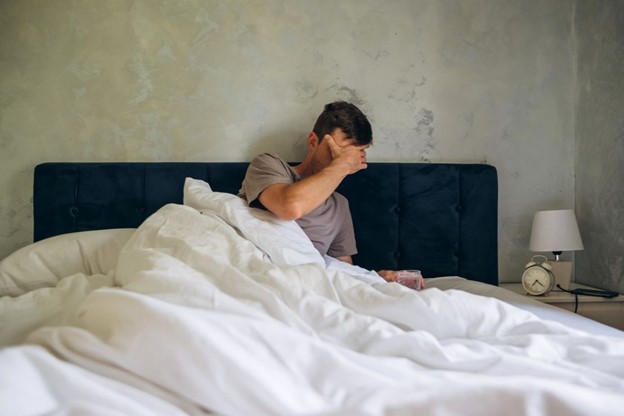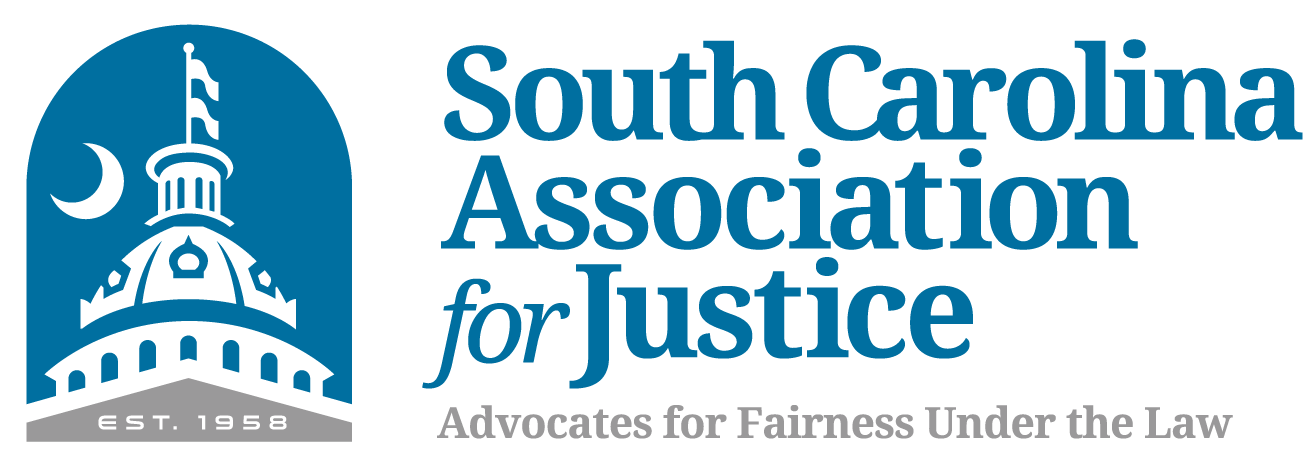Sleep deprivation and workplace safety are closely linked, with wide-reaching consequences for individuals, businesses, and society. Lack of sleep is becoming a big problem affecting many workers in the US. It’s a hidden danger that affects not only individual health and well-being but also workplace safety and productivity.
There are many occupational hazards that employees are exposed to daily. Surprisingly, one that is often overlooked is not a chemical or a machine – it’s sleep deprivation.
Sleep deprivation and workplace accidents – What is the relationship?
“There is overwhelming evidence demonstrating that sleep deprivation leads to workplace accidents.” (www.SleepFoundation.org)
Sleep-deprived employees are 70% more likely than well-rested employees to be involved in workplace accidents.
According to the US Centers for Disease Control and Prevention (CDC), adults need at least seven hours of sleep per night to be healthy. About one-third of adults are not getting that. The danger comes in when a worker doesn’t realize how tired he is and shows up for work overly tired or sleep-deprived. This can affect the worker’s manual dexterity, reaction time, alertness, judgment and safety. Even worse, it can put not only the employee at risk, but the public as well. (SafetyManualOSHA.com)
Safety risks of sleep-deprivation:
- Impaired motor skills
- Risk-taking and poor decision-making
- Poor memory and information processing
- Falling asleep on the job
- Inability to deal with stress
It’s obvious how these risks can cause enormous safety issues in certain industries. For example:
Sleep-deprived workers who drive as part of their duties (truck drivers and pilots) are a danger to themselves as well as others when they are driving drowsy. “Driving while sleep deprived has the same or worse impact as driving with a blood alcohol concentration (BAC) of 0.05%. For comparison, the federal legal BAC while driving in the US is 0.08%.”
Healthcare workers tend to work long hours or overnight shifts. A study of 100 nurses revealed that 32% more mathematical errors were made by night shift nurses compared with nurses who worked the day shift. This was due to poor sleep quality and decreased alertness. (SleepFoundation.org)
Infamous accidents caused by lack of sleep
You have probably heard of these catastrophic workplace accidents that were directly and indirectly caused by sleep deprivation:
- 1979 Three Mile Island Nuclear Plant: The worst commercial nuclear plant incident in the US occurred when shift workers (working between 4am and 6am) “failed to recognize a change that nearly resulted in the meltdown of the nuclear reactor later that day.”
- 1986 Chernobyl Nuclear Power Plant: Operators responsible when this catastrophe started at 1:23am were working on too little sleep.
- 1986 Space Shuttle Challenger explosion: Poor judgments were made when launching the space shuttle, because crucial managers were sleep deprived.
- 1989 Exxon Valdez oil spill: “Excessive work hours and sleep deprivation were major contributing factors to the grounding of the Exxon Valdez oil tanker, which led to the … oil spill in Prince William Sound.”
(SleepFoundation.org)
Causes of sleep deprivation
Multiple factors can cause sleep deprivation. Some are within our direct control, and others are not.
Voluntary choices include poor sleep hygiene and lifestyle choices.
Causes not necessarily in our control include work obligations (working multiple jobs or night shift), sleep disorders or medical conditions (such as sleep apnea). “Other medical or mental health concerns, such as pain or general anxiety disorder, can also interfere with the quality and quantity of sleep.” (SleepFoundation.org)
Signs of sleep deprivation
OSHA (Occupational Safety and Health Administration) emphasizes the importance of employers and co-workers monitoring health and safety in the workplace. This should include knowing the signs of sleep deprivation. Take notice of these symptoms:
- Sluggishness
- Falling asleep on the job
- Giddiness
- Forgetfulness
- Inability to deal with stress
- Slowed thinking
- Reduced attention span
- Loss of appetite
- Lack of energy
- Mood changes
- Paranoia
- Loss of balance or hand-eye coordination
(SleepFoundation.org)
For safety reasons, if you or another worker is showing these symptoms, the employer needs to be notified immediately.
How to get better sleep
What employers can do:
- Education, training and assessment – providing employees with information to improve their sleep
- Provide dedicated breaks and napping rooms
- Teach drivers how to recognize tiredness, encourage them to pull over safely, and allow them to take naps
- Modify the workplace to increase alertness – adjust lighting, maintain a cool temperature, continuous noise
(CDC.gov)
What employees can do:
- Develop a bedtime routine. Do something to help you relax like reading a book or listening to soothing music.
- Try to have a regular sleep schedule, going to bed at the same time every night, and getting up at the same time every morning. This will help keep your biological clock in check.
- Keep your bedroom cool. We sleep better in cool temperatures.
- Exercise at the same time every day, but not within 3 hours of bedtime.
- Avoid eating large meals or drinking caffeine close to bedtime.
- Don’t drink alcohol before bed. Alcohol reduces the quality of your rest, constantly pulling you out of the deeper stages of sleep.
- Do not watch TV or use electronic devices within two hours of bedtime. The National Sleep Foundation says “blue light affects the release of melatonin, the sleep hormone, more than any other wavelength of light.” This causes you to take longer to fall asleep and keeps you from having the proper amount of REM sleep (dream state).
- If you are tossing and turning, and can’t fall asleep after 15 minutes, get out of bed, keep the lights down low, and do something simple that won’t take much brain-power, like folding clothes.
- If you snore, you may have sleep apnea, which means you’re not getting the sound sleep you need.
- If you think you may have sleep apnea, contact your doctor for a sleep study.
- Don’t hit that snooze button! Your body will drop back into REM sleep and will not have time to reach the end of that cycle, causing you to wake up groggy, and stay that way longer.
- If you have trouble sleeping during the night, don’t take a long nap during the day to catch up. If you nap, don’t sleep long enough to enter a deep sleep cycle. This will mess up your body clock even more.
When to reach out for help
If you still have trouble sleeping after practicing good sleep habits, see a doctor.
Seek medical help if you:
- Have trouble falling asleep
- Have trouble staying asleep all night
- Feel tired after getting enough sleep
- Experience microsleeps – Sudden periods of sleep that last several seconds, sometimes without realizing it. Sometimes it happens in the middle of performing an important task. (Healthline.com)
Help for sleep disorders in South Carolina:
Upstate Sleep Solutions, Upstate
https://upstatesleep.com/
Lexington Sleep Solutions, Midlands
https://www.lexingtonsleepsolutions.com/
Coastal Sleep Lab, Myrtle Beach
https://coastalsleeplab.com/
MUSC Sleep Center ,Charleston
https://muschealth.org/medical-services/sleep-disorders
Sleep deprivation and workplace safety are more connected than you might think. We all need sleep to perform safely and effectively at work. As the boundaries between work and home blur in our always-connected world, understanding and addressing the impact of sleep deprivation on workplace safety has never been more critical.
Let’s redefine the norms around work and rest, acknowledging that adequate sleep is not a luxury but an absolute necessity for safety and success in the modern workplace.
The Law Offices of David L. Hood – Representing Injured Workers in South Carolina
The Law Offices of David L. Hood have been fighting for the rights of injured workers in North Myrtle Beach, Myrtle Beach, Murrells Inlet, Greenville, Georgetown, Charleston and all across South Carolina for over 30 years. If we believe we can help you, our dedicated team will strive to take care of your claim professionally and treat you with respect. Over the years we and our co-counsel have represented hundreds of injured workers and their families, working hard to get them the medical treatment and compensation they deserve. Don’t you deserve 5-star representation?
To learn more about what we can do for you, contact our offices to set up a free initial consultation. If you choose to work with us, we will handle your case on a contingent fee basis, which means you pay nothing unless we make a recovery for you. To get in touch with us, you can call our offices at (843) 491-6025 or email us here.
Other online resources used for this article:
https://www.cnn.com/2023/12/21/health/sleep-mental-health-wellness/index.html






